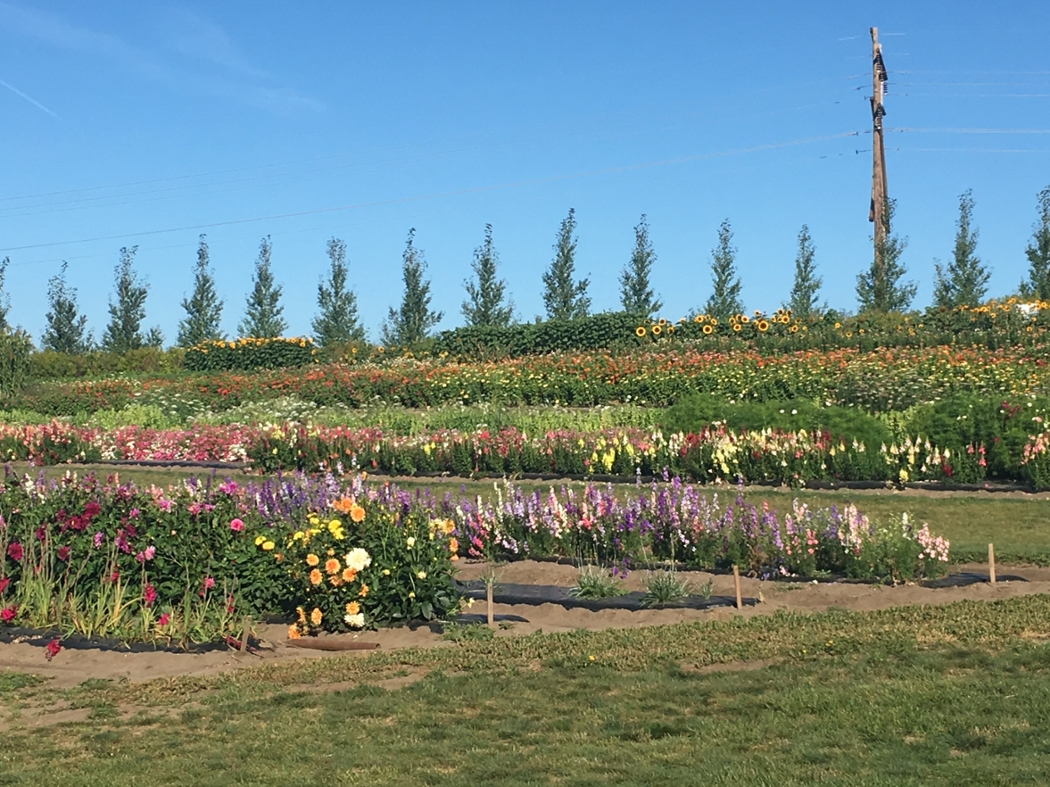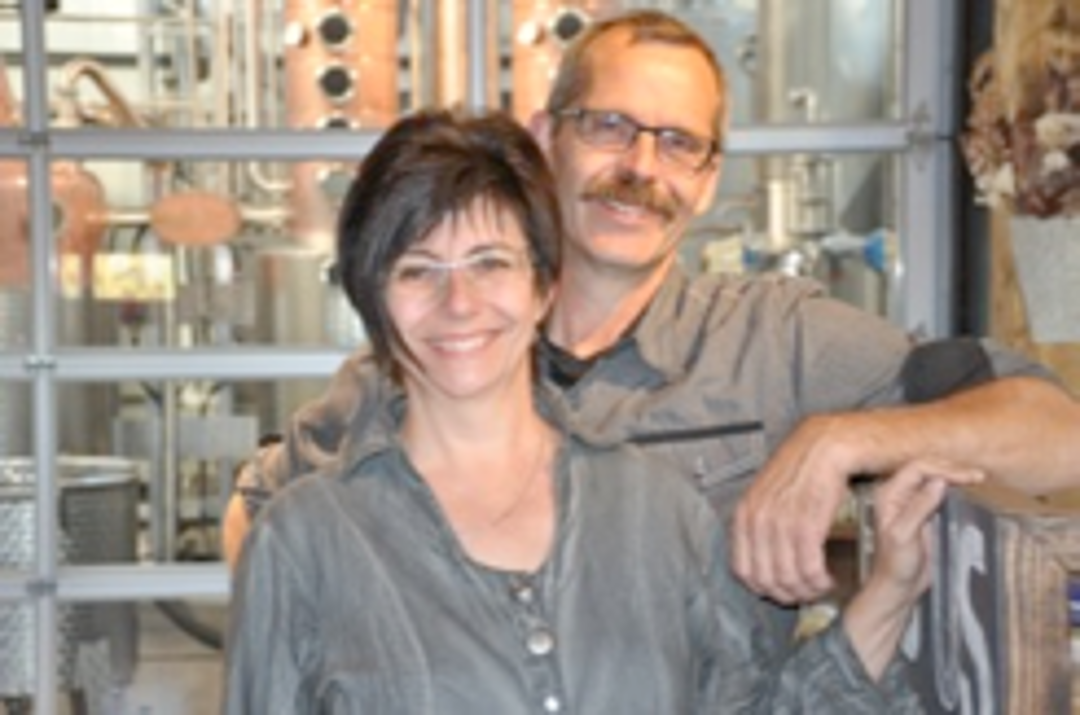
Charting their own course
Couple takes daring leap, swaps traditional grain farming for growing "booze and flowers"
By Glenn Cheater
John Cote and Barb Stefanyshyn both had a practical mindset when they headed off to U of S in the mid 1980s to study at what was then called the College of Agriculture.
Cote would study soil science because it was “applicable” to his family’s third-generation grain farm, while Stefanyshyn (now Stefanyshyn-Cote) would study animal nutrition en route to becoming a nutrition consultant.
Two decades later, the couple have completely shifted gears. The 3,000-acre grain farm has been sold, and they now joke that they “grow booze and flowers” on their new farm just outside Saskatoon.
But in a way, Black Fox Farm and Distillery has its origins in the days when Cote was learning about side-banding fertilizer and Stefanyshyn-Cote was researching the use of rye in animal feed (the subject of her 1993 master’s thesis).
“If we hadn’t gone to university, I don't think we would have had the confidence to make some of the decisions we made,” said Cote. “The college gave us much more than what we learned by going to classes. The professors were so interactive with us and, even today, some of our closest friends are from the network that got formed in those days.”
Calling up a professor or classmate to seek advice became a habit for the couple, and their network grew and grew, as did their involvement in organizations that attracted life-long learners. The couple were Saskatchewan’s and Canada’s Outstanding Young Farmers in 2001, Stefanyshyn-Cote has travelled the world as a Nuffield scholar, and Cote has been a national advocate for applying farm business management practices. The entire family even went on a two-year “sabbatical” in Mexico and Chile a decade ago.
“It’s an adventure we’d highly recommend,” said Stefanyshyn-Cote. “Travelling expands your outlook and perspective—extremely valuable for us, but even more so for the kids.” Those experiences reinforced what they learned at university, and convinced them that big leaps were possible.
“Just because you studied for years to become an entomologist doesn’t mean you can’t do something different,” said Cote. “It’s all about leveraging what you know.” The couple began to rethink grain farming when the oldest of their four children was entering his teen years and they were considering the longer-term future in an area (an hour’s drive north of Saskatoon) with a steadily shrinking population.
“If our kids took over the farm, we’d have a dilemma,” he said. “We’d have to get much bigger, we’d have to have people working for us. And how do you attract good people when you don’t have the amenities, and things like the bus ride to schools just get longer and longer all the time?
“So that prompted a move closer to the city and from there, it all fell into place.”
Well, sort of.
The plan when they sold their grain farm in 2010 and bought 80 acres of river valley land was to grow vegetables during the years-long process of setting up a micro-distillery. They soon realized they lacked the scale needed to make a go of veggies and “needed to change something pretty quick before we ended up with a disaster,” said Cote.
That turned out to be growing 250 varieties of flowers on seven acres, making their farm the largest cut-flower producer in the province. (“Which doesn’t take much in Saskatchewan,” Cote joked.)
The business—which includes a U-pick along with sales to florists, a farmers’ market, and weddings—is labour intensive and summers are “pretty full,” but it’s not a bad way to spend your day, quipped Stefanyshyn-Cote.
It would take until the summer of 2015 before the first batch of gin flowed out of their distillery (the equipment was handmade in Germany and is controlled by state-of-the-art computer technology). Less than two years later, Black Fox became the first Canadian distiller to win a World Gin Award when its barrel-aged vapour-infused dry gin wowed the expert judges at the prestigious English event. And more critically, the operation (blackfoxfarmanddistillery.com) is now generating a return, even though it won’t reach full production until next year and its first whiskeys are a few years from being ready for sale.
While Cote admitted their ride into the unknown has been full of unexpected twists and turns, he described the process in very matter-of-fact terms.
“For us, it started with a standard strategic planning session—identifying the problem, listing the goals, and then putting everything on the table,” he said. “It has to start very, very high end and then you drill down and identify some options and start investigating them.
“Oh gosh, it can take years but eventually you have a business plan and cash-flow projections, and you’re off and doing it.”
The key was realizing that learning is not something you’re ever done with, said Cote. “The distilling industry is extremely foreign to us, but what we do know is how to grow the grain, fruit and ingredients,” he continued. “Just because you trained to become one thing doesn’t mean you can’t make a career change, and push the boundary.”
Of course, everyone wants to know the secret to doing that, but Cote—still the down-to-earth grain farmer at heart—has a short and simple answer.
“It’s just about not being scared to try new things.”

